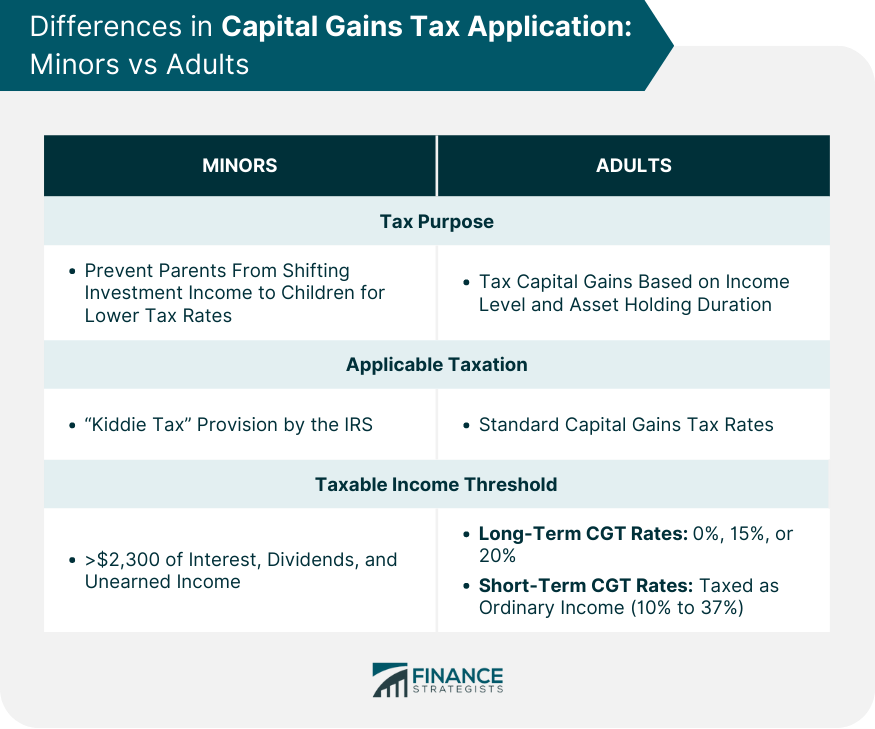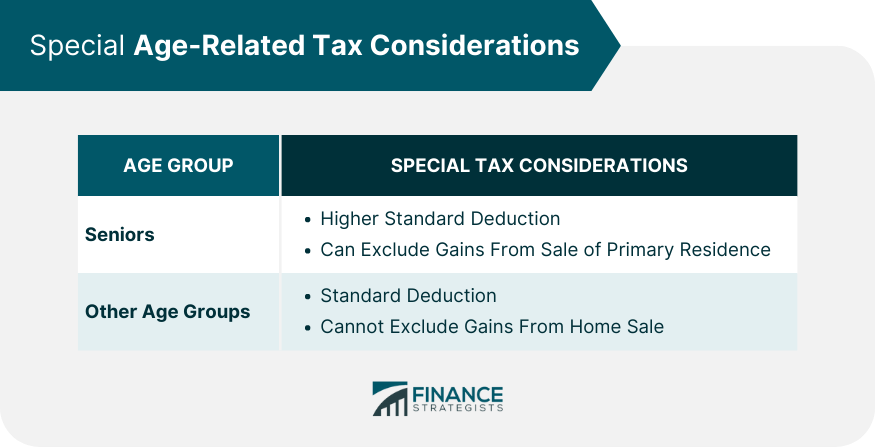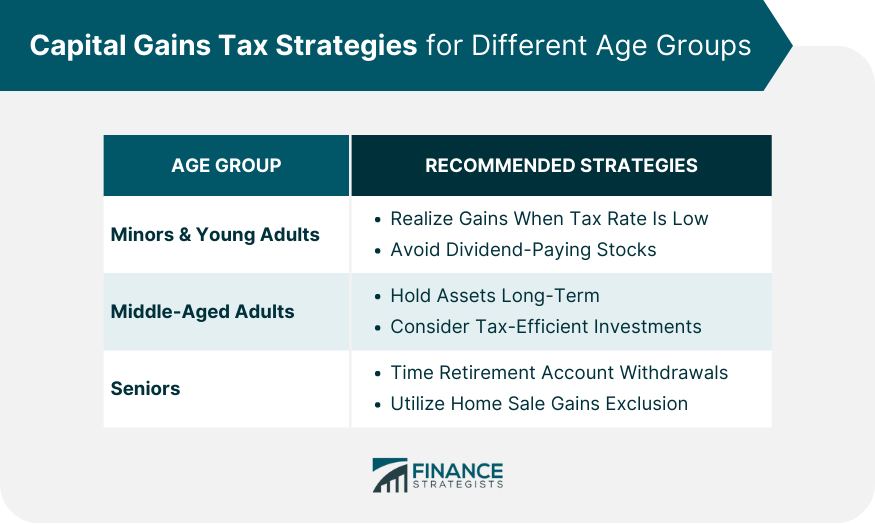Capital gains tax (CGT) is a fee imposed on the profit made from selling a 'capital asset', such as stocks, bonds, real estate, precious metals, or even entire businesses. The determination of CGT depends on a variety of factors, including the type of asset, the length of ownership, the taxpayer's income bracket, and notably, their age. The fundamental premise of CGT is centered around the concept of 'capital gain,' which refers to an increase in an asset's value from its purchase to sale. On the other hand, a 'capital loss' is a decrease in the asset's value over the same period. Crucially, capital gains are typically taxed at a different rate than regular income, making CGT a unique area of the taxation system. It's worth noting that the specifics can differ significantly based on the aforementioned factors, adding layers of complexity to the calculation of CGT. The IRS does not prescribe any age limit for CGT, per se. However, the tax liability and strategy can change significantly as a person matures and transitions through different life stages. This can be attributed to factors like changing income levels, varying financial responsibilities, and modifications in retirement contributions and withdrawals. Younger individuals, for example, might not have substantial income and therefore could fall into a lower tax bracket, influencing their capital gains tax rate. As individuals grow older and presumably earn more, their tax brackets—and thus their capital gains rates—may increase. At retirement age, income levels might decrease again, potentially lowering the capital gains tax rate. The "kiddie tax" is a provision by the IRS to prevent parents from shifting their investment income to their children to take advantage of their lower tax rates. If a child's interest, dividends, and other unearned income total more than $2,300, part of that income could be subject to taxes at the parent's tax rate, potentially affecting the capital gains tax rate. For adults, capital gains tax rates are typically based on their income level and the duration for which they've held an asset. As of 2024, the long-term capital gains tax rates are 0%, 15%, or 20%, depending on the taxpayer's taxable income. Short-term capital gains are taxed as ordinary income, which can range from 10% to 37% based on income levels. Senior citizens often enjoy tax benefits that younger adults do not, which can extend to capital gains tax. For instance, taxpayers over the age of 65 get a higher standard deduction, which can decrease taxable income and potentially lower capital gains tax. Furthermore, the sale of a primary residence can result in the exclusion of capital gains up to a certain limit. Capital gains in retirement accounts like 401(k)s and traditional IRAs are typically not taxed upon realization. Instead, withdrawals from these accounts are taxed as ordinary income, irrespective of whether the money came from capital gains, dividends, or interest. For minors and young adults in lower tax brackets, it could be advantageous to realize capital gains when their tax rate is low. Additionally, investing in growth stocks that do not pay dividends can help avoid the kiddie tax. For adults in higher tax brackets, it's often beneficial to hold onto assets for at least a year to qualify for lower long-term capital gains rates. Tax-efficient investing, such as index funds and tax-managed funds, can also be beneficial. Seniors might consider timing their retirement account withdrawals carefully to manage their income levels and possibly stay within a lower capital gains tax bracket. Utilizing the home sale capital gains exclusion can also provide significant tax savings. Although understanding the basics of capital gains tax is essential, there comes a point when professional advice may be required. This is especially true when dealing with significant amounts of capital gains, a complex financial situation, or significant life changes. A tax professional can provide advice tailored to your specific circumstances, helping to optimize your tax strategy. They can guide you on aspects such as tax-loss harvesting, specific identification of shares, gift and inheritance strategies, and more, enabling you to navigate the complexities of capital gains tax effectively. The implications of Capital Gains Tax (CGT) vary with age, marked by the progression through life stages and financial milestones. Minors, adults, and seniors face unique challenges and opportunities with respect to CGT - from the 'kiddie tax' for minors, standard taxation based on income and asset holding duration for adults, to special deductions and exemptions for seniors. Despite the absence of an explicit CGT age limit, the tax liability and strategy adapt to age-related shifts in income, financial obligations, and retirement scenarios. Furthermore, one's CGT scenario can be optimized with age-specific strategies, including the timing of realizing gains, choice of investment types, and withdrawal timings from retirement accounts. However, given the complexity of CGT and the potential for significant financial impact, professional tax planning advice can be invaluable. Understanding Capital Gains Tax
CGT Age Limit
Explanation of CGT Age Limit
How Age Influences CGT Liability
Differences in CGT Application: Minors vs Adults
Taxation of Minors: Understanding the "Kiddie Tax"
Adults and CGT: Standard Rates and Regulations

Special Age-Related Tax Considerations
Reduced Rates and Exemptions
CGT Implications for Retirement Accounts

Capital Gains Tax Strategies for Different Age Groups
Strategies for Minors and Young Adults
Strategies for Middle-Aged Adults
Strategies for Seniors

Role of Professional Tax Planning
When to Consult a Tax Professional
Advantages of Professional Tax Planning in Relation to CGT
Bottom Line
Understanding Capital Gains Tax Age Limit and Tax Strategies FAQs
Age affects capital gains tax in various ways. Different age groups, from minors to adults and seniors, fall under diverse tax provisions and rates.
Minors may be subject to the "kiddie tax," where investment income over a certain amount could be taxed at the parent's rate.
Adults' capital gains tax rates depend on their income level and how long they've held the asset. Long-term capital gains tax rates are typically lower.
Seniors often get tax benefits, like a higher standard deduction, and can exclude capital gains from the sale of a primary residence up to a certain limit.
Strategies vary, from realizing gains at a low tax rate for young adults, holding assets long-term for middle-aged adults, to timing retirement account withdrawals for seniors.
True Tamplin is a published author, public speaker, CEO of UpDigital, and founder of Finance Strategists.
True is a Certified Educator in Personal Finance (CEPF®), author of The Handy Financial Ratios Guide, a member of the Society for Advancing Business Editing and Writing, contributes to his financial education site, Finance Strategists, and has spoken to various financial communities such as the CFA Institute, as well as university students like his Alma mater, Biola University, where he received a bachelor of science in business and data analytics.
To learn more about True, visit his personal website or view his author profiles on Amazon, Nasdaq and Forbes.















